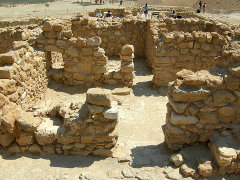A Biblical Perspective on Environmentalism: Part 2-2

There have been some “bright spots” in human history regarding stewardship of the land. In his famous book Farmers of Forty Centuries, or Permanent Agriculture in China, Korea and Japan (1911), F. H. King reported how the fertility of agricultural land in the population-dense Far East was maintained for millennia by the careful return to the land of virtually every last scrap of every kind of organic waste—from crop residues to manures to leaves to ashes even to laboriously dug and spread river sediment, along with intentionally grown cover crops or “green manures,” all in the pre-chemical fertilizer days.
It came to be recognized as late as the 1930s, even in the West (Europe, America) that an extensive, intensive utilization of organic waste of all kinds was essential, even where chemical fertilizers were available, to keep the soil fertile (or, more often, to restore its original fertility). Some pioneering work in this regard was done by Sir Albert Howard (1873-1947) whose book An Agricultural Testimony documented the successful use of composting in maintaining the fertility of farmland in India, and is considered one of the foundational works in the modern organic gardening movement. In America, Louis Bromfield (1896-1956), prize-winning novelist-turned-farmer, pioneered modern conservation and restoration agricultural methods on a thousand-acre farm near Mansfield, Ohio. He wrote about his experiences in fully restoring the original fertility in less than a decade in the widely-popular and influential books Pleasant Valley (1945), Malabar Farm (1948), Out of the Earth (1950), and From My Experience (1955).
 Read
Read 

 Read
Read 
Discussion